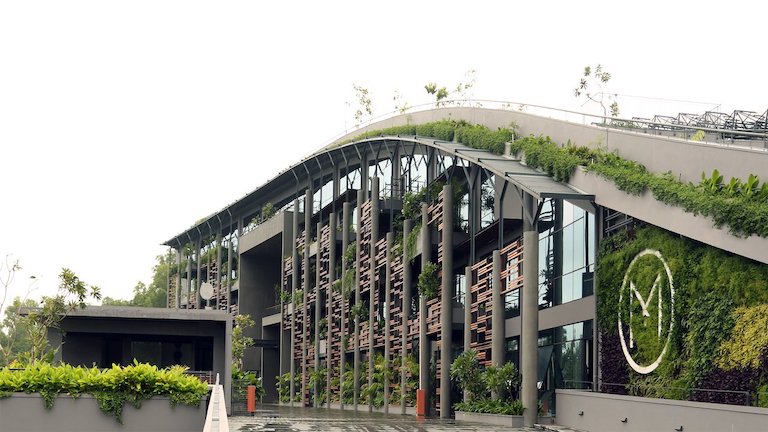As part of the Malabar Group’s ongoing Hunger Free World initiative, 247 micro learning centers have been established across the country to provide basic education to street children and facilitate their transition into formal schooling. So far, 11,700 children have been enrolled in these centres, where they receive one year of foundational education to help them return to or begin formal education. The initiative ensures each child continues their studies in a structured school environment, with an annual expenditure of Rs. 10,000 per child to support their education.
In a ceremony held in Mumbai’s East Govandi Tata Nagar slum, Malabar Group Chairman MP Ahammed inaugurated 101 Micro Learning Centres as part of the project’s second phase, spanning 11 states. Dignitaries at the event included Vice Chairman KP Abdul Salam, India Operations Managing Director O. Asher, Group Executive Director A. K. Nishad, and Dr. V. Idrees, Chairman of ‘Thanal’.
Commenting on the initiative, MP Ahammed, Chairman, Malabar Group, said, “This project reflects our commitment to creating a sustainable future for street children by providing them with an opportunity to break free from the cycle of poverty through education. We believe that through these Micro Learning Centres, we are laying the foundation for thousands of children to have a brighter future, starting with access to basic education.”
Malabar Group has also announced plans to establish an additional 250 Micro Learning Centres in 16 states within the next two months. Once these are operational, the centres will be able to serve up to 25,000 children annually. Children who complete their 10th standard will receive support for higher studies on campuses across various states, with additional scholarships available to girls as part of the Group’s commitment to women’s empowerment.
Micro Learning Centres aim to provide essential education, with a focus on encouraging further schooling. Teachers from local communities are appointed at a ratio of one teacher per 40 students, and children are provided with nutritious food, including milk, bananas, and eggs, during their study period. After completing their year at the centre, students are supported in transitioning to formal schools.
The Hunger Free World project also addresses other critical needs of street dwellers, including healthcare, rehabilitation of mothers, access to clean drinking water, construction of sanitation facilities, and ensuring documentation to secure government benefits. The project is implemented in collaboration with the voluntary organisation ‘Thanal’.
Malabar Group distributes 50,000 nutritious food packages daily across 80 cities in 16 Indian states and provides 10,000 food packets daily to schoolchildren in Zambia. The Group aims to expand this initiative, reaching 1 lakh people per day at 200 centres globally.
Additionally, Malabar Group’s ‘Grandma Home’ initiative provides shelter for destitute women, offering free accommodations with comprehensive facilities in Bengaluru and Hyderabad. Expansion plans include new homes in Kerala, Chennai, Kolkata, Delhi, and Mumbai. Recently, the Group announced Rs. 16 crore in educational scholarships for 21,000 girls, part of their ongoing commitment to empowering women and girls across India.
Since its inception, Malabar Group has spent over Rs. 263 crores on CSR projects focused on education, healthcare, and social welfare. Individuals and organisations interested in partnering with the Hunger Free World project can contact Malabar Charitable Trust or Thanal Non Profit Organisation for more information. Contact: 0495 -2726919
Disclaimer: This media release is auto-generated. The CSR Journal is not responsible for the content.


